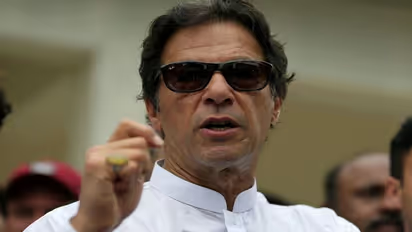US court junks Pakistan’s plea in Reko Diq case

Synopsis
Pakistan is faced with a major challenge to counter a settlement dispute claim of $6 billion as the ICSID imposed a fine on Pakistan on July 12, 2019 for revoking a contract for mining at Reko Diq in Balochistan.
Washington DC’s District Court has rejected Pakistan’s motion to stay or dismiss the enforcement of a $6 billion award by International Centre for Settlement of Investment Disputes (ICSID) in the Reko Diq case.
Pakistan is faced with a major challenge to counter a settlement dispute claim of $6 billion as the ICSID imposed fine on Pakistan on July 12, 2019 for revoking a contract for mining at Reko Diq in Balochistan.
A British Virgin Islands (BVI) court also ruled on the matter, attaching Pakistan International Airlines’ (PIA) assets in New York and Central Paris to enforce the award.
Pakistan had been granted a conditional stay of enforcement, but the stay was lifted in 2020 after Pakistan failed to meet conditions laid out by the court, as reported in the Tribune.
The court stated that Pakistan was essentially deploying the same argument in maintaining that since no valid arbitration agreement existed between the two parties, Pakistan had not waived its sovereign immunity under the Foreign Sovereign Immunities Act (FSIA).
However, the Washington district court highlighted and emphasised that it is not entitled to review such an arbitrability agreement with reference to ICSID award under the FSIA.
“Even if we were allowed to do so, it would owe deference to the arbitration tribunal’s decision on this issue,” the Washington DC district court maintained.
“The US statute implementing the ICSID Convention required courts to give awards the same full faith and credit as if the award were a final judgment of the state court,” the court ruling highlighted.
The court directed both parties to agree on a joint proposed final judgment, consistent with its Memorandum Opinion, including the current amounts for pre and post-award interest.
Reqo Dek holds an estimated 12.3 million tonnes of copper and 20.9 million ounces of gold, making it one the world’s largest copper and gold deposits. Since the 1990s, the mining of this lucrative resource has been mired with allegations of corruption and breached contracts.
Check the Breaking News Today and Latest News from across India and around the world. Stay updated with the latest World News and global developments from politics to economy and current affairs. Get in-depth coverage of China News, Europe News, Pakistan News, and South Asia News, along with top headlines from the UK and US. Follow expert analysis, international trends, and breaking updates from around the globe. Download the Asianet News Official App from the Android Play Store and iPhone App Store for accurate and timely news updates anytime, anywhere.